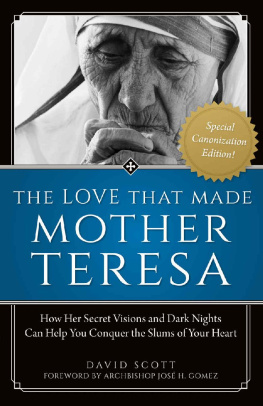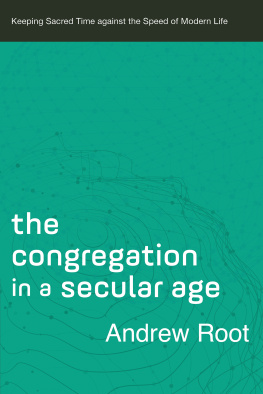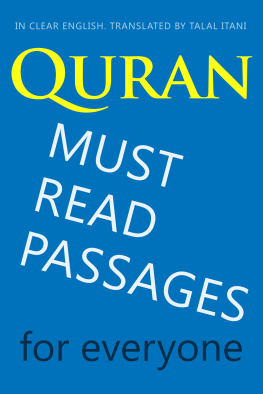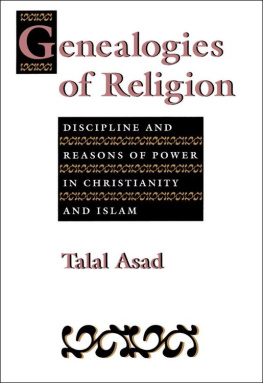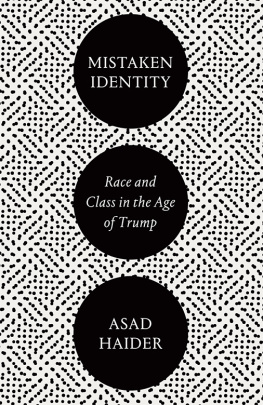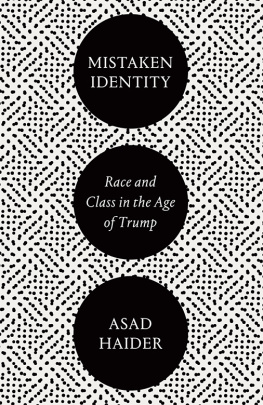David Scott - Powers of the Secular Modern: Talal Asad and His Interlocutors
Here you can read online David Scott - Powers of the Secular Modern: Talal Asad and His Interlocutors full text of the book (entire story) in english for free. Download pdf and epub, get meaning, cover and reviews about this ebook. year: 2006, publisher: Stanford University Press, genre: Religion. Description of the work, (preface) as well as reviews are available. Best literature library LitArk.com created for fans of good reading and offers a wide selection of genres:
Romance novel
Science fiction
Adventure
Detective
Science
History
Home and family
Prose
Art
Politics
Computer
Non-fiction
Religion
Business
Children
Humor
Choose a favorite category and find really read worthwhile books. Enjoy immersion in the world of imagination, feel the emotions of the characters or learn something new for yourself, make an fascinating discovery.

- Book:Powers of the Secular Modern: Talal Asad and His Interlocutors
- Author:
- Publisher:Stanford University Press
- Genre:
- Year:2006
- Rating:4 / 5
- Favourites:Add to favourites
- Your mark:
- 80
- 1
- 2
- 3
- 4
- 5
Powers of the Secular Modern: Talal Asad and His Interlocutors: summary, description and annotation
We offer to read an annotation, description, summary or preface (depends on what the author of the book "Powers of the Secular Modern: Talal Asad and His Interlocutors" wrote himself). If you haven't found the necessary information about the book — write in the comments, we will try to find it.
Powers of the Secular Modern: Talal Asad and His Interlocutors — read online for free the complete book (whole text) full work
Below is the text of the book, divided by pages. System saving the place of the last page read, allows you to conveniently read the book "Powers of the Secular Modern: Talal Asad and His Interlocutors" online for free, without having to search again every time where you left off. Put a bookmark, and you can go to the page where you finished reading at any time.
Font size:
Interval:
Bookmark:
Cultural Memory in the Present
Mieke Bal and Hent de Vries, Editors
Powers of the Secular Modern
Talal Asad and His Interlocutors
David Scott
Charles Hirschkind
Stanford University Press
Stanford, California
2006 by the Board of Trustees of the
Leland Stanford Junior University.
All rights reserved.
No part of this book may be reproduced or transmitted in any form or by any means, electronic or mechanical, including photocopying and recording, or in any information storage or retrieval system without the prior written permission of Stanford University Press.
Printed in the United States of America
on acid-free, archival-quality paper
Library of Congress Cataloging-in-Publication Data
Powers of the secular modern : Talal Asad and his interlocutors
/ edited by David Scott and Charles Hirschkind.
p. cm.(Cultural memory in the present)
Includes bibliographical references and index.
9780804767798
ISBN 0-8047-5266-4 (pbk. : alk. paper)
1. EthnologyPhilosophy. 2. EthnologyEastern HemispherePhilosophy. 3. PostcolonialismEastern Hemisphere. 4. SecularizationEastern Hemisphere. 5. Asad, TalalCriticism and interpretation. I. Scott, David, 1958II. Hirschkind, Charles. III. Series.
GN345.P66 2006
306.01dc22
2005013565
Original Printing 2006
Last figure below indicates year of this printing:
15 14 13 12 11 10 09 08 07 06
For Tanya
Table of Contents
Introduction: The Anthropological Skepticism of Talal Asad
David Scott and Charles Hirschkind
For more than three decades, Talal Asad has been engaged in a distinctive critical exploration of the conceptual assumptions that govern the Wests knowledgesespecially its disciplinary and disciplining knowledgesof the non-Western world. The investigations that comprise this by no means concluded intellectual project have of course been varied in the objects and topics taken up for inquiry, but they have all been characterized, we suggest, by a profoundly questioning attitude, an attitude of skepticism . Asads skepticismarticulated largely (though not exclusively) in relation to anthropological claimshas been directed toward systematically throwing doubt on Enlightenment reasons pretensions to the truth about the reasons of non-European traditions. This is not to make out Asad to be a mere subverter of the desire for positive knowledge. Rather his impulse is guided, we think, by the Wittgensteinian dictum that whether a proposition turns out to be true or false depends on what is made to count as its determinants or criteria; it will depend on the language-game in which it is employed. And language-games, for Asad, are historical and political and therefore ideological matters potentially warranting deconstructive as well as reconstructive investigation.
I
Adumbrations of this intellectual stance of skepticism can already be discerned in the manner in which Asad entered the anthropological upheaval of the late 1960s and early 1970s. As is well known, these were years in which the British social anthropological establishment (in which Asad was trained and in which he spent the first two decades of his academic life, largely at the University of Hull) was coming under attack for its alleged role in the administrative functioning and ideological legitimization of the British colonial enterprise. Indeed, in some Left quarters anthropology was being criticized as the very handmaiden of colonial subjection and its practitioners reviled for their racism (remember that Bronislaw Malinowskis diaries were published in 1967 and set off a mini-scandal in the discipline of which he was a revered founder). While sympathetic to the anticolonial rejection of anthropologys hubristic will-to-omniscient-knowledge, however, Asad very early articulated a doubt about the register and direction of this criticism. He doubted not only whether anthropology was as important to colonial rule as its detractors often alleged, but also whether the reactive and defensive moralizing posture of assertion and counterassertion was at all constructive. In interrogating the colonial question in anthropology, he urged, what is important is the conceptual structure of the discipline and the relation of this structure to the conditions of power in which the discipline realized itself as authoritative knowledge.
Take, for example, his first book, The Kababish Arabs , published in 1970 and no doubt little read today. It is, in many ways, a very recognizable monograph in the British anthropological tradition. Its formal concern is an analytical description of the organization of power, authority, and consent among the Kababish of northern Sudan. Undoubtedly the colonial question haunts the books concerns; however, Asad takes aim not at the supposed motivations of colonial anthropologists but at the ideological character of their dominant theoretical paradigm, namely functionalism.
In the colonial environment in which early social anthropologists encountered their primitive polities, and in the atmosphere of philosophical positivism surrounding the early development of social anthropology, it seemed appropriate and possible to take primitive political structures for granted and view them with detachment as aspects of identifiable natural systems. Viewed functionally in relation to a total natural system, political activity emerged primarily as a mode of maintaining the coherence or identity of a given society. If classic functionalism had not existed, it would have been necessary for anthropologists to invent it, for it enabled them to analyze primitive political systems without having to consider alternative political possibilities. The character of political domination remained unproblematic because it was part of the natural order of things.
The passage is a characteristic one. The issue (and he makes it more explicit in a footnote) that requires our attention is not the attitude of anthropologists toward their native informants (however reprehensible that may be) but the ideological conditions that give point and force to the theoretical apparatuses employed to describe and objectify them and their worlds.
Of course, the delineation of the problem of anthropologys relationship with colonialism was even more sharply articulated in Asads edited volume, Anthropology and the Colonial Encounter , published in 1973.
This set of concerns was not necessarily shared by all the contributors to the volume, needless to say, but it was exemplified in the critical practice of Asads own essay, Two European Images of Non-European Rule.
The 1980s, however, were a period of transitions for Asadtransitions in geographic and institutional location, and transitions in intellectual direction. In 1988 he relocated to the United States from Britain to take up a position in the Department of Anthropology at the Graduate Faculty of the New School for Social Research in New York. Although he would never be seamlessly integrated into either its professional or scholarly ethos, Asad would nevertheless now be more systematically part of the landscape of argument that constituted U.S. anthropology. In the 1980s that landscape was animated (decentered , in the jargon of the moment) by debates about power and representation that had entered the humanities and social sciences by way of the linguistic and poststructuralist turns. Edward Saids Orientalism , published in 1978, vividly brought together the themes of power/knowledge and the questioning of the West and helped to create the intellectual space for the revival (as well as recharacterization ) of the
Next pageFont size:
Interval:
Bookmark:
Similar books «Powers of the Secular Modern: Talal Asad and His Interlocutors»
Look at similar books to Powers of the Secular Modern: Talal Asad and His Interlocutors. We have selected literature similar in name and meaning in the hope of providing readers with more options to find new, interesting, not yet read works.
Discussion, reviews of the book Powers of the Secular Modern: Talal Asad and His Interlocutors and just readers' own opinions. Leave your comments, write what you think about the work, its meaning or the main characters. Specify what exactly you liked and what you didn't like, and why you think so.





